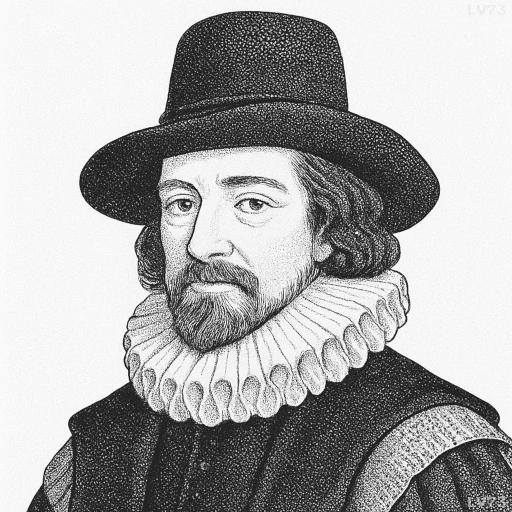“The desire of excessive power caused the angels to fall; the desire of knowledge caused men to fall.”

- January 22, 1561 – April 9, 1626
- Born in England
- Philosopher, theologian, jurist, politician, aristocrat
table of contents
Quote
“The desire of excessive power caused the angels to fall; the desire of knowledge caused men to fall.”
Explanation
In this quote, Francis Bacon draws a parallel between two central stories in religious and philosophical thought: the fall of the angels and the fall of man. He suggests that excessive desire—whether for power or knowledge—leads to destruction or downfall. According to Bacon, the angels’ fall is attributed to their desire for unlimited power, which led to their rebellion and expulsion from heaven. Similarly, the fall of mankind—often associated with the story of Adam and Eve in Christian theology—is caused by their overreaching desire for knowledge, symbolized by their disobedience in seeking the forbidden fruit. Bacon’s insight suggests that greed, in its various forms, ultimately leads to ruin, whether in the pursuit of dominion over others (power) or the pursuit of ultimate truth (knowledge).
Bacon’s view reflects a central tension in the Renaissance between human ambition and the moral consequences of that ambition. The period was marked by a burgeoning sense of human potential and a growing interest in knowledge, discovery, and scientific progress. Yet, Bacon, a proponent of empirical science, was also aware of the dangers of excessive curiosity or hubris. His caution about the dangers of desiring too much power or too much knowledge reflects a moralistic concern: while these pursuits can lead to greatness, they can also lead to downfall when taken to extremes.
In modern times, this quote remains relevant in the context of ethical considerations surrounding power and knowledge. In political contexts, the desire for unchecked power has led to corruption, authoritarianism, and societal harm, much like the story of the fallen angels. Similarly, the desire for unlimited knowledge, particularly in fields like technology or genetics, raises important ethical questions about the consequences of advancing beyond our understanding or control. For example, the development of artificial intelligence or biotechnology presents both the potential for immense benefit and the risk of harm if not guided by wisdom and ethical restraint. Bacon’s quote serves as a timeless reminder that both power and knowledge must be pursued with humility and responsibility, lest they lead to downfall rather than progress.
Would you like to share your impressions or related stories about this quote in the comments section?



